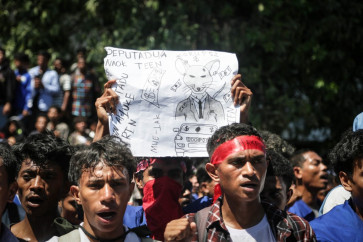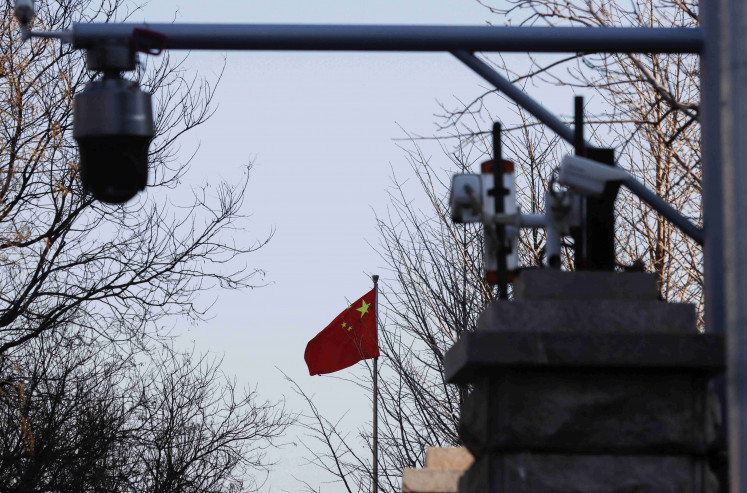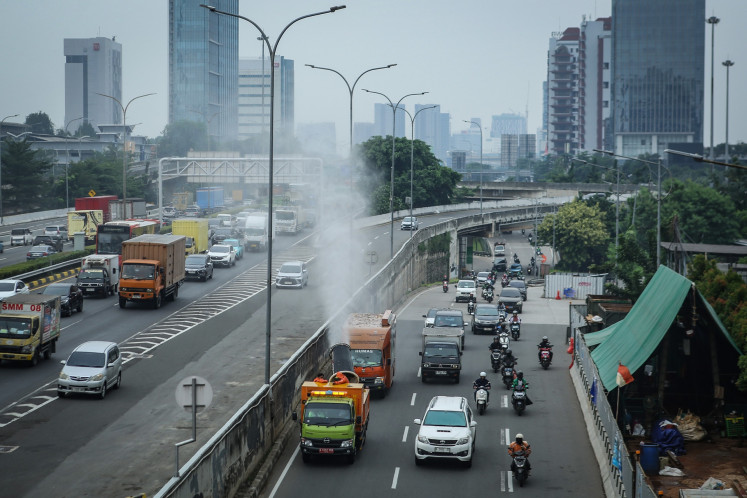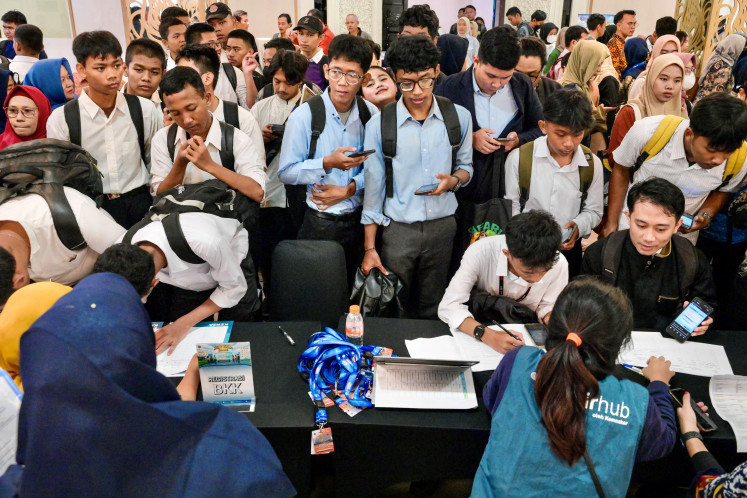Popular Reads
Top Results
Can't find what you're looking for?
View all search resultsPopular Reads
Top Results
Can't find what you're looking for?
View all search resultsASEAN is more pro-China than US: Survey
China, thanks to its ambitious Belt and Road Initiative, has increased economic and political engagement in Southeast Asian countries.
Change text size
Gift Premium Articles
to Anyone
F
or the first time in five years, Southeast Asian grouping ASEAN, collectively, is tilting more toward China than the United States, a new survey by a Singapore think tank has found.
The ISEAS-Yusof Ishak Institute has been compiling the annual survey report “State of Southeast Asia” since 2020 and every year before, the US was the bloc’s preferred world power.
This year, however, when asked if being forced to align with one of the strategic rivals, which should they choose, 50.5 percent respondents chose China while 49.5 percent picked the US.
The preferences last year were 38.9 percent for China and 61.1 percent for the US.
ASEAN consists of 10 countries. Seven of them – Brunei, Cambodia, Indonesia, Laos, Malaysia, Myanmar, and Thailand – polled in favor of China with a higher rate than last year. Malaysia and Laos saw the biggest changes – 20.3 percent and 29.5 percent, respectively.
The US, however, remains the superpower of choice for Singapore (61.5 percent), Vietnam (79 percent) and the Philippines (83.3 percent).
The latter two, especially the Philippines, have seen Beijing’s increased aggression in the South China Sea, where there are conflicting claims by different countries but China’s claim is by far the most expansive.
Hanoi, meanwhile, has upgraded its relationship with Washington to the highest level of comprehensive strategic partnership, reflecting a new mutual trust and cooperation.
Decreased US engagement
The survey said the US maintains its status as the region’s advocate for maintaining a rules-based order and upholding international law.
However, when asked about the US policy toward Southeast Asia, 38.2 percent said that the level of US engagement has decreased under the administration of President Joe Biden, with 25.2 percent saying it has increased.
Only 34.9 percent of regional respondents say the US is a reliable security partner, a big drop from 47.2 percent last year.
Meanwhile, the majority of regional respondents “still maintain a sense of unease and worry” about China’s economic and political and strategic influence, according to Sharon Seah, the lead author of the survey.
“Perceptions of China as the most influential economic power in Southeast Asia remain high with 59.5 percent of regional respondents sharing this view,” the survey found.
China, thanks to its ambitious Belt and Road Initiative, has increased economic and political engagement in Southeast Asian countries.
That led to a majority of respondents worried about China’s growing regional economic influence in the region (67.4 percent). Only 32.6 percent said they welcomed China’s strengthened foothold in their economies.
“Perhaps the tide of sentiment has shifted toward China as the more consequential relationship for the region,” Seah wrote in the Yusof Ishak Institute’s site Fulcrum.
“But it remains to be seen whether the recent trend of diminishing regard for the US’s strategic partnership will mark a sea change in regional geopolitics.”
The survey by the institute’s ASEAN Studies Centre between January and February contacted 1,994 people.
Singapore has the highest number of respondents (273 or 13.7 percent), followed by Indonesia (265 or 13.3 percent) and Malaysia (225 or 11.3 percent).
A 10 percent weighting average was applied to each country’s responses to calculate the average figures for ASEAN as a whole.
The largest affiliation group of respondents were from the private sector (33.7 percent), followed by government (24.5 percent), and academia, think-tanks or research institutions (23.6 percent).










